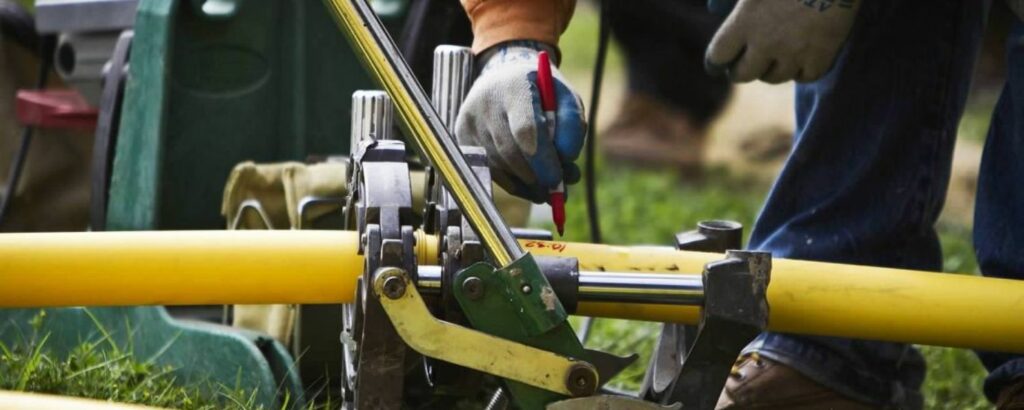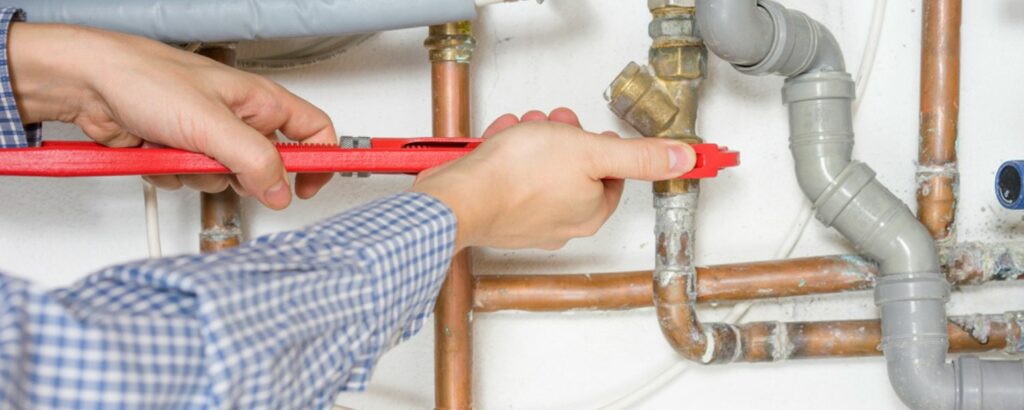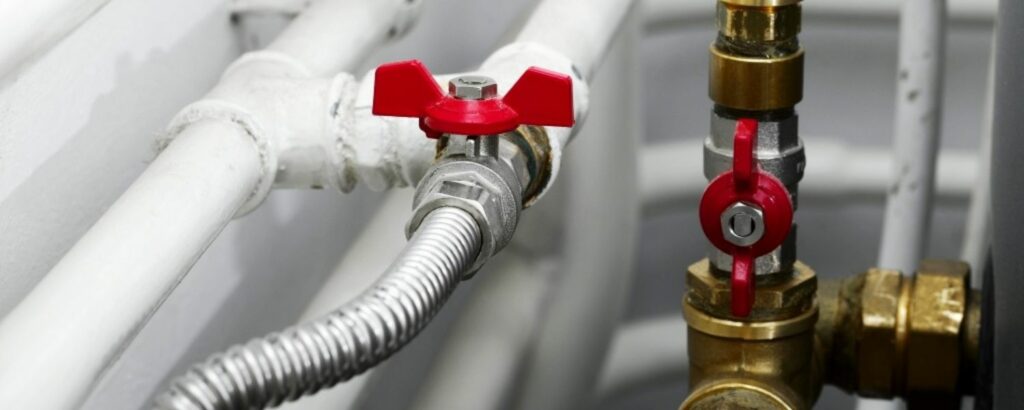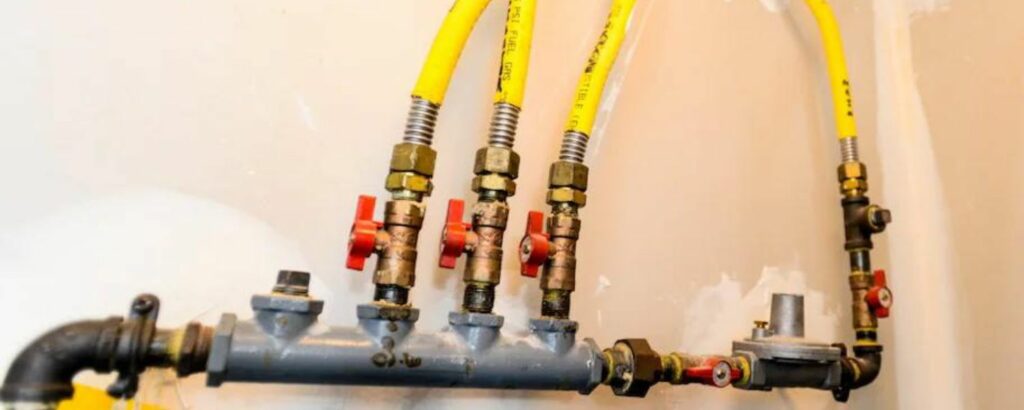Gas lines are the lifelines that fuel our homes with natural gas line repair, powering everything from stoves to water heaters and furnaces. However, like all things, they require maintenance; sometimes, repairs are inevitable.
Understanding the line repair kit costs can help you plan and avoid unexpected expenses. In this comprehensive guide, we’ll break down the costs, factors affecting the price, signs that you might need a gas line repair, and what to expect from the repair process.
Understanding Gas Line Repair

Gas line repairs are essential for maintaining the safety and functionality of a home gas line repair or business. Any issue with gas lines should be treated urgently, whether caused by age, wear and tear, or external damage. Gas line repairs can range from minor leaks to significant replacements, each with varying costs and complexities. Before diving into costs, it’s crucial to understand what a gas line repair entails.
What is a Gas Line Repair?
A gas line repair involves fixing a damaged or leaking gas pipe that connects a property to the natural gas supply. Natural gas may be used to fuel appliances like a natural gas furnace.
Repairs may include sealing a small leak, replacing a section of pipe, water heater repair, or even a complete gas line replacement in severe cases. The repair process is highly technical and should only be done by qualified experts to guarantee safety and compliance with local regulations.
Common Causes of Gas Line Problems
Several factors can lead to gas line issues. These include:
Corrosion and Rust: Over time, gas lines constructed of metal are prone to corrosion and rust, which can erode the pipes and cause leakage.
Physical Damage: Construction work, landscaping, or accidental impact can damage gas lines.
Age and Wear: Like all infrastructure, gas lines have a lifespan. Older pipes may develop issues due to wear and tear.
Improper Installation: Poorly installed gas lines may not comply with safety standards and could lead to leaks or failures.
Gas Line Repair Costs: What to Expect

The cost of gas line repair can differ significantly based on some factors, such as the severity of the damage, location, and the type of materials required for the repair. Moreover, on average, homeowners can expect to pay between $150 to $3,000 for gas line repairs. However, the cost could be higher for more extensive repairs or replacements, including gas hot water tanks.
Factors Affecting Gas Line Repair Costs
Length of the Gas Line: The longer the gas line needs repair or replacement, the higher the cost. Costs can increase if the line runs through challenging terrain or under concrete.
Labor Costs: However, labor costs vary based on location, between $50 and $150 per hour. Moreover, urban areas tend to have higher labor costs.
Accessibility: If the gas line is difficult to access, such as being buried under concrete or near other utility lines, additional costs for excavation or special handling may apply.
Signs You Need a Gas Line Repair

Detecting gas line problems early can prevent costly repairs and ensure your home is safe. Here are some common signs that indicate you may need a gas line repair:
The Smell of Gas
The rotten egg odor is one of the most apparent signs of a gas leak. Natural gas is odorless, but utility companies add a mercaptan chemical to detect leaks. However, if you smell gas in your home, it is crucial to evacuate immediately and contact a professional.
Hissing or Whistling Sounds
Moreover, hearing a hissing or whistling sound near a gas line may indicate a leak. This sound often comes from a hole or crack in the line where gas is escaping under pressure.
Dead or Dying Vegetation
Initially, if you notice patches of dead or dying grass or plants in your yard, it could indicate an underground gas leak. Gas leaks can deprive plants of oxygen, causing them to wither and die.
Higher Than Normal Gas Bills
Additionally, a sudden spike in your gas bill without a corresponding increase in use might be a sign of a gas leak. Even small leaks can waste significant gas, leading to higher costs.
Physical Symptoms
Moreover, exposure to natural gas can cause physical symptoms such as headaches, dizziness, nausea, and breathing difficulties if you experience these symptoms at home, it could be due to a gas leak.
What to Expect During a Gas Line Repair

Understanding the process of gas line repair can help you feel more prepared and less stressed when facing this type of situation. Here’s what typically happens during a repair:
Inspection and Diagnosis
A licensed plumber or gas line repair specialist will examine your property to determine the issue’s cause. This involves using specialized equipment to detect leaks and assess the condition of the gas lines. Based on the findings, they will provide a repair estimate.
Obtaining Permits
In many jurisdictions, repairing or replacing a gas line requires permits from the local government. The professional handling the repair will usually obtain the necessary permits and arrange for inspections.
Repair or Replacement
The actual furnace repair services process depends on the extent of the damage. For minor leaks, a simple patch or seal may suffice. For more severe damage, a section of the gas line may need to be replaced, or the entire line may need rerouting.
Testing and Inspection
After the repair, the contractor will test the checking the gas line for leaks and the system is functioning correctly. An inspector may also need to verify the repair to meet local safety codes.
Tips for Reducing Gas Line Repair Costs

While gas line repairs can be expensive, there are several ways to reduce costs and manage expenses:
Regular Maintenance and Inspections
Routine inspections can help detect potential problems before they escalate into costly repairs. Consider scheduling annual gas line inspections as part of your home maintenance routine.
Bundle Repairs
If you have multiple plumbing or gas-related issues, consider bundling them together. Many companies offer discounts for various gas line repair services, which can reduce the overall cost.
Choose the Right Contractor
Always choose a licensed and experienced professional for line repairs. While it might be tempting to go with the cheapest option, poor-quality work can lead to more expensive repairs in the future.
Conclusion
Gas line repairs, including those related to your water heater tank, are not something to take lightly. They are critical for maintaining the safety and efficiency of your home’s natural gas system. Moreover, the cost of repairs, whether for gas lines or water heater tank repair, can vary significantly based on several factors. Still, understanding these costs, the repair process, and potential signs of trouble can help you make informed decisions and prepare financially.
By staying vigilant for signs of gas leaks, scheduling regular inspections, and choosing experienced professionals, you can reduce the dangers and expenses associated with gas line and water heater tank repairs. Furthermore, remember that safety should always be the priority when dealing with gas lines.


